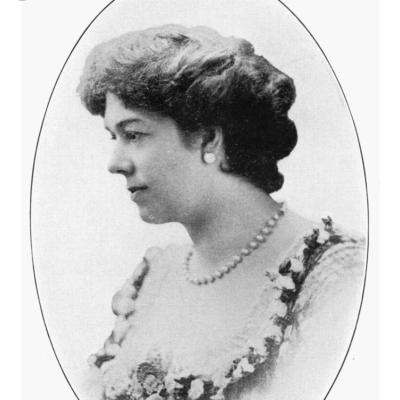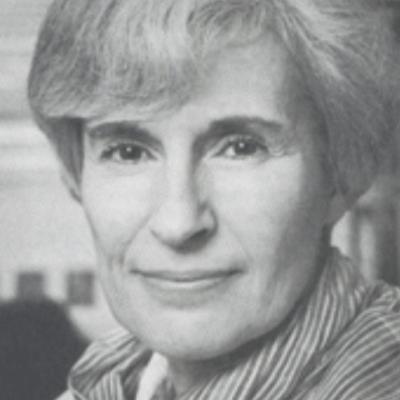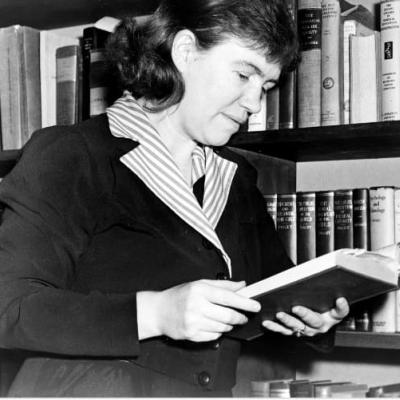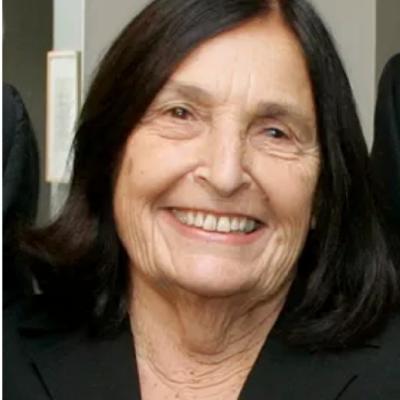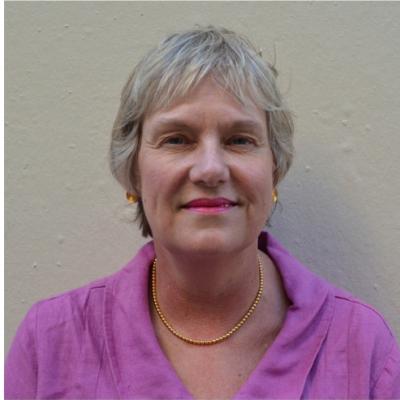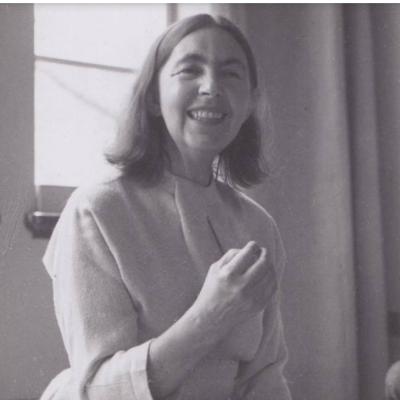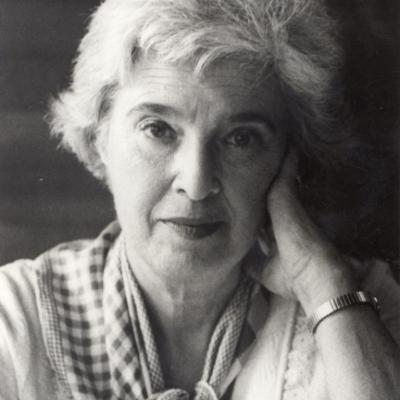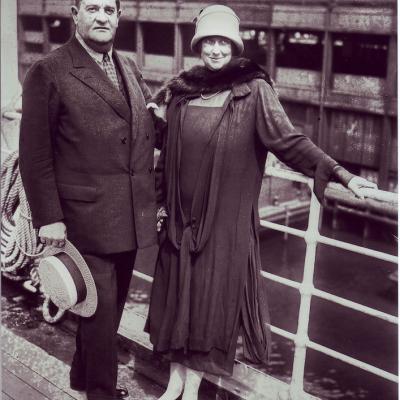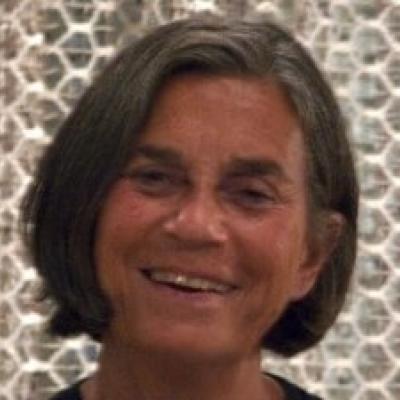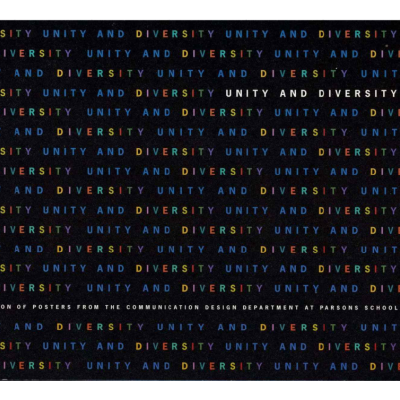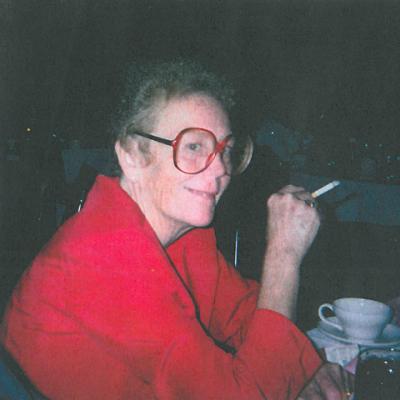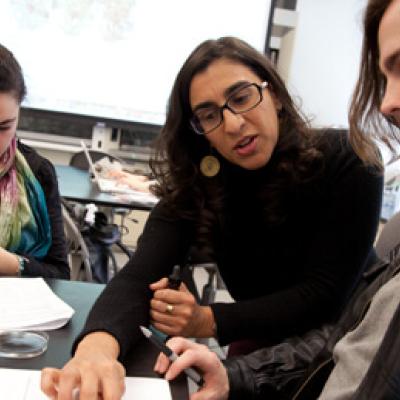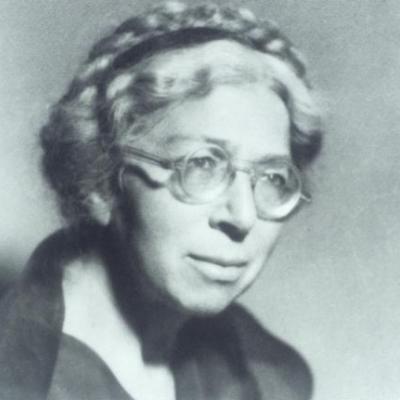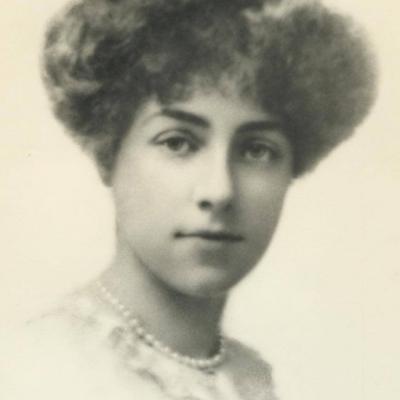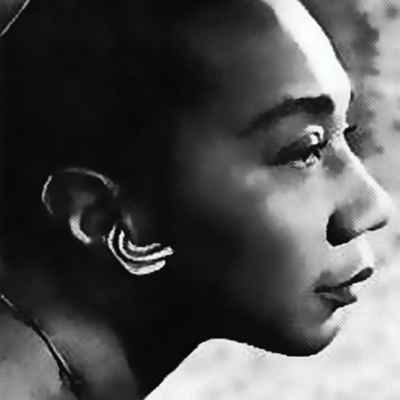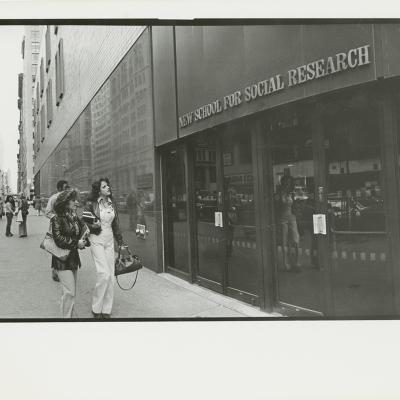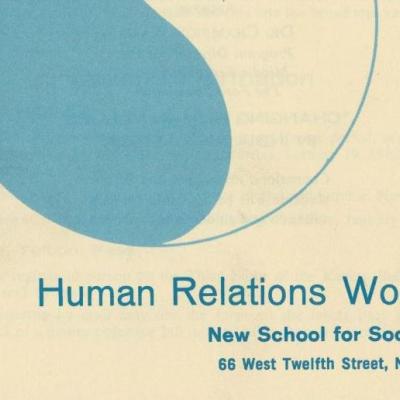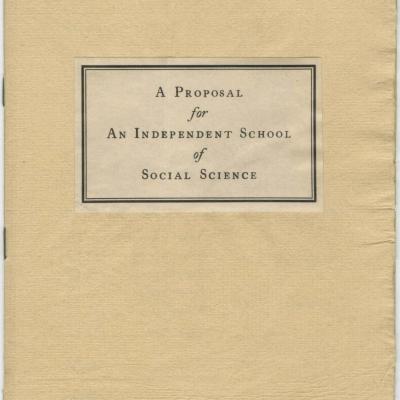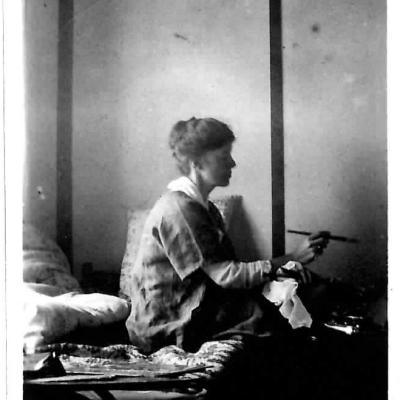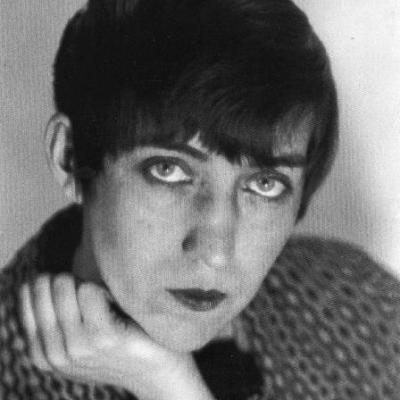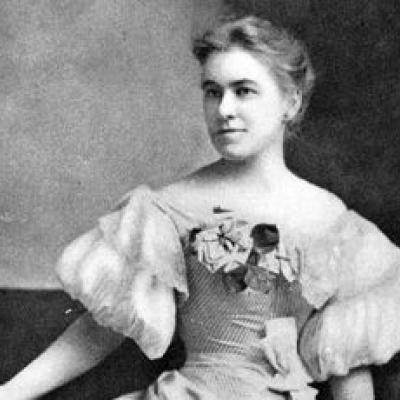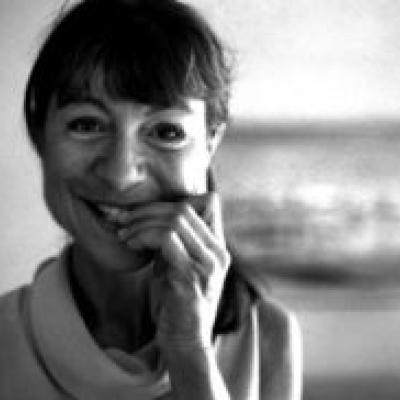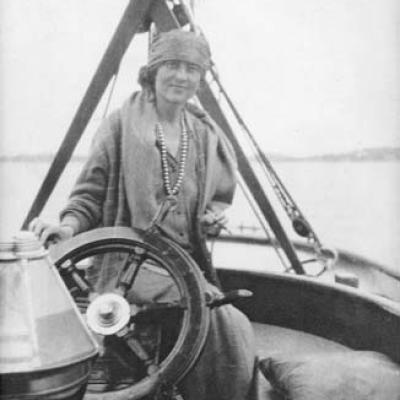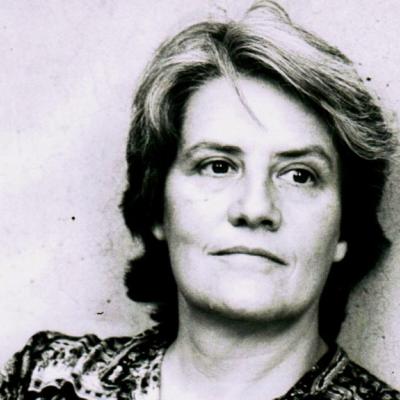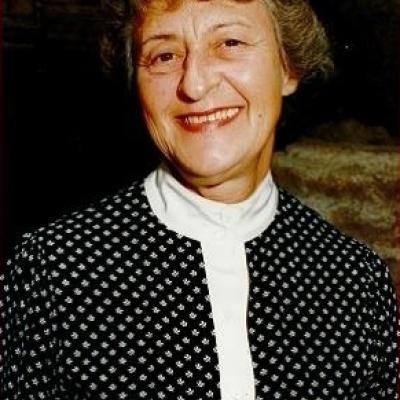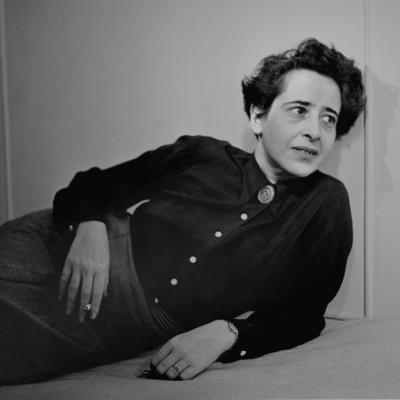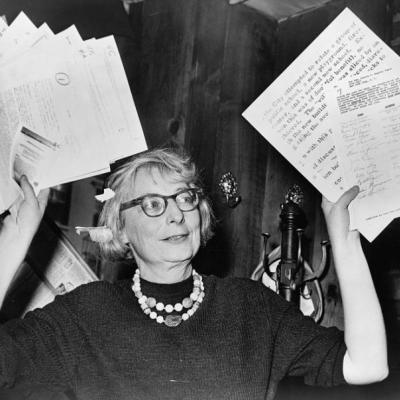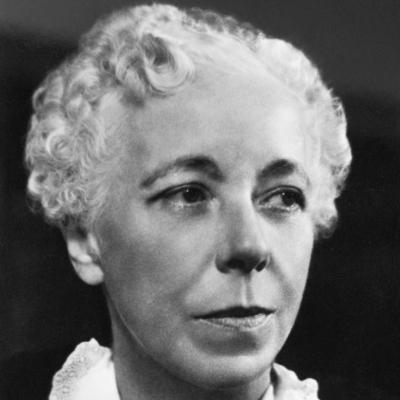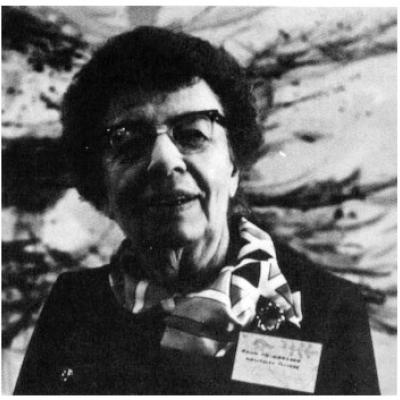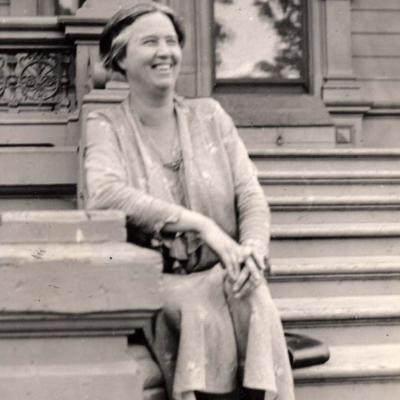Category: Women
Clara Mannes
Clara Mannes (1869-1948) was a German-American pianist and music educator.
Margaret Mead
Margaret Mead was best known for her work in anthropology. She had a career at the New School for over twenty years.
Warfare is Only an Invention—Not a Biological Necessity
Those who argue for the first view endow man with such pugnacious instincts that some outlet in aggressive behavior is necessary if man is to reach full human stature.
Speech in the Theatre: Trouble with Speech in the American Theatre
Just because we all have the gift of gab does not mean we are endowed with the art of speech. Speech is an art, especially speech for the theatre. Those of us who devote ourselves to this art must continually question and re-evaluate our aims and methods.
Arien Mack
Arien Mack has been a professor of psychology at the New School for Social Research since 1970, and still teaches today in the Adult Bachelor’s division. You can read more about her here.
Oral History Interview with Benjamin Patterson
The following oral history transcript is the result of a recorded interview with Benjamin Patterson on 2009 May 22. The interview took place at Patterson's home in New York, N.Y., and was conducted by Kathy Goncharov for the Archives of American Art, Smithsonian Institution.
Kathy Goncharov
Kathy Goncharov was the director of the New School Art collection for about twelve years. You can read about her here.
The Uses of Sidewalks: Safety
Streets in cities serve many purposes besides carrying vehicles, and city sidewalks—the pedestrian parts of the streets—serve many purposes besides carrying pedestrians.
Women Enter the Hall of Fame
Cipe Pineles, the woman who broke the sex barrier at the Art Directors Club of New York by becoming a member, has also turned out to be the first woman to be inducted into its Hall of Fame.
Sensory Awareness and Our Attitude Toward Life
In our work of Sensory Awareness, we experiment with all the simple activities of daily life, all the things which we have been doing since we were born, or which we have learned in our earliest infancy, such as walking, standing, sitting, lying, moving, resting, seeing, speaking, lis
Charlotte Selver
Charlotte Selver (1901-2003) was a music educator and body awareness instructor born in Germany. In the 1920s, Selver studied piano and was also enrolled in the Dr.
The Refuge of Affections: Family and American Reform Politics, 1900–1920 (Dorothy Whitney and Willard Straight)
Like many of their contemporaries, both Dorothy Whitney and Willard Straight had, when younger, tried to change the world they knew, and they both succeeded within limits.
Francesca Cernia Slovin Immigrant Arts and Women’s Empowerment Summit 2018
Francesca Cernia Slovin was born on March 14, 1952 in Terni, Italy, to the late Elena and Enrico Cernia. She was an older sister to the late Paola and Michele, whose memories she carried tightly.
The Exhibition Table
Several months ago it was necessary for me to import a large table into my English classroom. After the original use for the table had passed, I searched for the janitor to ask him to remove it.
1930s Multiculturalism: Rachel Davis DuBois and the Bureau for Intercultural Education
The Bureau for Intercultural Education was the brainchild of a young school teacher, Rachel Davis DuBois.
The New School for Social Research: A “Second-Chance” Program for Women
Since its creation, the Center has changed its character dramatically from a leisure- and volunteer-activity orientation to a no-nonsense commitment to devising ways for women to get back into the mainstream.
Editor’s Introduction
Over the last several decades there has been a growing wave of concern over the use and abuse of mind-altering substances that has left in its wake increasingly large expenditures for what is familiarly called the "War on Drugs," despite the simultaneously ever-expanding body of evide
Maternal Thinking
The passions of maternity are so sudden, intense and confusing that we ourselves often remain ignorant of this perspective, the thought that has developed from our mothering. Lacking pride, we have failed to deepen or to articulate that thought.
In Search of Popular Culture: The 60s Legacy
Sondra Farganis, chairwoman of the social sciences at the New School for Social Research in New York City, supports the importance of popular culture as a course of study. She also believes it belongs in the sociology or history departments.
Origins of the Rural Social Structure
The big land owners who dominated the German army and bureaucracy believed that the state was obliged to protect their privileges. Most of the agricultural population, still influenced by feudal traditions, accepted the leadership of this minority group.
The Guardian of New York’s Living Heritage: Panel Oversees Historic Districts with a Loving Eye
When Gerald and Beatrice Banu sought approval for refurbishing the cast iron balustrades that grace the front of their 114 year-old Greenwich Village brownstone, the New York City's Landmarks Preservation Commission quickly gave its approval.
Berenice Abbott Evokes City of 30s
With every year that passes, Berenice Abbott looks more and more like what she is-one of the great irreducible Americans and one who will be remembered as long as there is anyone around who wants to know what America stood for and what manner of people Americans were.
The Death and Life of Great American Cities
Reformers have long observed city people loitering on busy corners, hanging around in candy stores, and bars and drinking soda pop on stoops, and have passed a judgment, the gist of which is: "This is deplorable!
Cell Biology for Life Philosophy
It is also important for students to make connections and bridge the gap between what they learn in the classroom and everyday life.
A Special Supplement: Reflections on Violence
No one concerned with history and politics can remain unaware of the enormous role violence has always played in human affairs; and it is at first glance rather surprising that violence has so seldom been singled out for special consideration.
Gerda Lerner
Gerda Lerner (née Kronstein, 1920–2013) was an author, historian, and seminal figure in founding of women’s history. Lerner spent more than 50 years working to grow and define this field, also creating the first formal women’s history graduate programs.
Mary Urban
Mary Urban held many roles at the New School as an administrator and wife of Joseph Urban, the architect of the flagship building of the New School for Social Research at 66 W. 12th Street. She was born Mary Porter Beegle, probably in 1881, in Ocean Grove, New Jersey.
Sondra Farganis
“Breaking the rules, taking risks comes at a price,” says Sondra Farganis, Director Emeritus of both the Vera List Center for Art and Politics (VLC) and the Wolfson Center for National Affairs at the New School (WC).
The Legacy of Diversity at The New School
From its opening in 1919, The New School has prided itself on being a progressive institution, focused on creating an innovative space for learning and practice. The founders envisioned a college that allowed students and professors to engage intellectually and freely.
Wally Osterholz
The New School has attracted a string of devoted, long-serving administrators, most of whom have been women. One of them was Wally Osterholz, who worked in the Adult Division for forty-five years, from 1962 to 2007.
Katayoun Chamany
With a 17-year history at The New School, we thought Katayoun Chamany, Associate Professor of Natural Sciences, would be perfect to answer some questions regarding New School facilities, specifically the 66 West Twelfth Street building.
Clara Mayer
Clara Woolie Mayer (1895-1988) is possibly the most important forgotten figure in New School administrative history.
Dorothy Payne Whitney Straight Elmhirst
Dorothy Payne Whitney was born in 1887, the youngest child of Flora Payne and William C. Whitney. By the age of 17, her mother, stepmother, and her father had all died, leaving Dorothy with an enormous inheritance and a sense of urgency to make her life have meaning.
Vinnette Carroll
It was during Gina Luria Walker and Ellen M. Freeberg’s Women’s Legacy class at the New School that I was introduced to Vinnette Carroll. Ellen Freeberg had come across Carroll’s name in the New School Archives.
Women at The New School
The Charlotte W.
The Human Relations Center
The Human Relations Center began in 1951 at the behest of Clara Mayer, the infamous right-hand woman of Alvin Johnson, the long-time director of the school.
The Founding, 1919
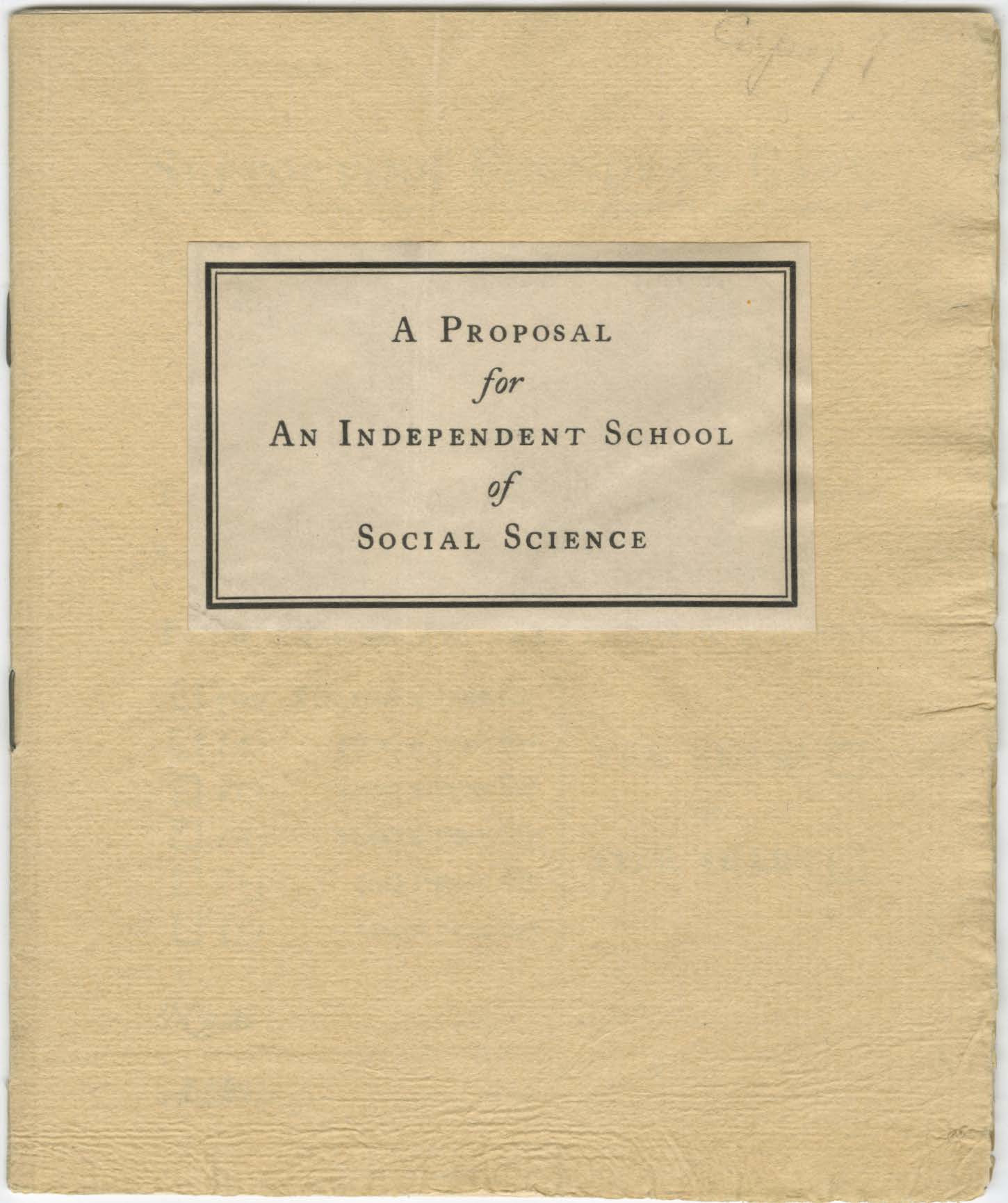
Margaret McKay Tee
Margaret McKay Tee was born in 1882 and raised in Pennsylvania until her family moved to Colorado. Following her education at Colorado College, she trained at New York’s Cooper Union and Columbia Teacher’s College, where she met Frank Alvah Parsons.
Berenice Abbott
American Photographer Berenice Abbott (1898-1991) was best known for her preservation of modern art and her documentation of New York’s ever-changing landscape.
Emily James Smith Putnam
Emily James Smith Putnam (née Smith) was a historian, author and educator who served as the first dean of Barnard College in New York City. Born in 1865 in Canandaigua, New York, Putnam graduated from Bryn Mawr College as part of the first class of 1889.
Francesca Cernia Slovin
Francesca Cernia Slovin (March 14, 1952-April 2, 2017) taught at The New School from Spring 1996 to Fall 2000, and once again in Fall 2003.
Elsie Clews Parsons
Elsie Clews Parsons, née Elsie Worthington Clews (November 27, 1875, N.Y., N.Y. – December 19, 1941, N.Y., N.Y.), was an American sociologist and anthropologist who produced landmark studies of the Pueblo and other Native American tribes in the Southwest, Mexico, and South America.
Sara Ruddick
Sara Ruddick (1935-2011) was an influential philosopher and feminist, best known for her analysis and research on the care of children. She earned her undergraduate degree at Vassar College in 1957, and her Ph.D. in philosophy from Harvard in 1964.
Janet Abu-Lughod
Janet L. Abu-Lughod (1928-2013), professor emerita at The New School for Social Research and of Sociology at Northwestern University, held graduate degrees from the University of Chicago and the University of Massachusetts Amherst.
Hannah Arendt
Many at The New School would agree that it is difficult to graduate from the university without hearing the name Hannah Arendt.
Julie Meyer
Julie Meyer, a pioneering scholar in the sociology of labor, was born in Nuremberg, Germany, on January 15, 1897, to a banking family. She studied in Munich and Erlangen and received her Ph.D. from the University of Erlangen in 1922.
Jane Jacobs
Jane Jacobs (1916-2006) was an author, journalist, and urban theorist who transformed the way that urban developments were constructed in American cities. In 1935, she moved from her hometown of Scranton, Pennsylvania, to Brooklyn, NY.
Karen Horney
Karen Horney taught psychology at The New School. You can read more about her here.
Mary Henle
Mary Henle was a professor of psychology at the New School and the last surviving second-generation Gestalt theorist. Her accomplished career belies the restrictions women generally faced during the same period in the field of psychology.
Agnes de Lima
Agnes de Lima was born in New Jersey to a conservative banking family that had emigrated from Curaçao. De Lima grew up in Larchmont, New York, and New York City, and graduated from Vassar College in 1908, majoring in English.
Placing Women in History: Definitions and Challenges
In the brief span of five years in which American historians have begun to develop women’s history as an independent field, they have sought to find a conceptual framework and a methodology appropriate to the task.
Woman as Slave
Historical sources on the origins of slavery of slavery are sparse, speculative and difficult to evaluate.
The Lady of the Salon
Towards the end of the reign of Henry the Fourth of France, Marquise de Rambouillet built for herself a new in the Rue St. Thomas du-Lovre, and placed her staircase in a corner of the building instead of in the middle where all the world had supposed a staircase must be.
The Stranger and the City
In the ultimate sense of education and of culture, there can be no conflicts.
“Satisfaction of Social Categories” and “Women”
In any study of the relations between personality and social classification the queries arise why the social categories are alike so compulsive to the conservative-minded and so precious, why they are given such unfailing loyalty, why such unquestioning devotion?
Refugees from Utopia: Remembering, Forgetting and the Making of the Feminist Memoir Project
Rachel Blau DuPlessis and I, old friends from the Women’s Liberation Movement, discovered in the late eighties a shared indignation – and grief. The books about the sixties were beginning to come out.
On the Costs, Utilities and Simple Joys of Voting
A widely accepted “picture” equation of the voting calculus, originated by Downs’ is R = PB – C where R is reward; B is the perceived differential in benefits offered the voter by the two parties; P is the probability that his vote will bring about the favored party’s victory; and C r
Gestalt Psychology and Gestalt Therapy
The purpose of this paper is to try to set the historical record straight while the history in question is still in the making. lt seeks to clarify the relations between gestalt therapy and Gestalt psychology, from which the therapy claims to derive.
Culture and Neurosis
In the psychoanalytic concept of neuroses a shift of emphasis has taken place: whereas originally interest was focused on the dramatic symptomatic picture, it is now being realized more and more that the real source of these psychic disorders lies in character disturbances, that the s
New Dance: Writings on Modern Dance
My dance is an art concerned with human values. It upholds only those values that make for harmony and opposes all forces inimical to those values.
The Majority Finds its Past
While still an undergraduate at the New School I offered my first course in Women’s History, “Great Women in American History” in the fall of 1962.
Love’s Reason
My life has been shaped by a love affair with Reason. When I felt awkward or left out as a child or beset by lustful and envious fantasies, I clung to Reason in the most obsessive manner, determined to be faithful despise my “wild”, unpleasant feelings.
Living in Translation
When I came to the United States in 1939 as a refugee from Hitler fascism, I had, like all refugees, a very problematic relationship with the English language. On the one hand, I wanted desperately to learn English and to speak it well.
How to Treat a Woman
hips, thighs, hindquarters grapefruits in grocery bags skin cells osteoporosis, presbyopia estrogen Snow won’t fall in that crystal ball memory hair, fur, face, chin spots poundage A peep is a sound Bed, sciatic muscle, sex color, sweat.
Greenwich Village and the Soul of a Woman (On Clara Mayer)
Clara Meyer, the heart, brains and soul of the New School for Social Research from 1919 until 1960 hired me as registrar, that is, bean counter, during those early WWII years while I was attending Columbia College and awaiting my call up in the U.S. Army Reserve Corps.
Reflections on Violence
Discontinuities and Persistence: One World System or a Succession of Systems?
One world system or a succession of systems?
The Islamic City—Historic Myth, Islamic Essence, and Contemporary Relevance
At the present time of resurgence in Islamic beliefs, the question of the Islamic city has once again come to the fore.
